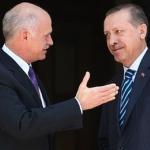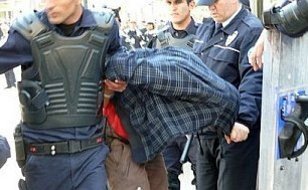On Wednesday, 23 January, Greek Prime Minister Costas Karamanlis came to Turkey for a three-day visit. It was the first time in 49 years that a Greek leader had visited Ankara.
Words of good will
The visit was widely seen as an attempt to strengthen relations between the countries, rather than to solve the issues they disagree on.
Karamanlis expressed his support for EU membership for Turkey, once it had fulfilled the necessary conditions. He also said:
“"I am here to show Greece's desire, which is to go beyond the difficulties of the past and to look towards the future with hope.”
Turkish Prime Minister Recep Tayyip Erdogan foresaw “new opportunities” in this year.
Macar: Visit was planned years ago
Assistant Prof. Dr. Elcin Macar, lecturer in political science and international relations at Yildiz Technical University in Istanbul, evaluated Karamanlis’ visit as symbolic.
He pointed out that no concrete results had ever been expected of the visit. In general, so Macar, Greece preferred to deal with problems with Turkey via the EU, rather than address them directly.
Macar pointed out that Karamanlis’ visit had been planned four years ago, but that the Greeks had set out conditions for carrying out the visit.
“The fact that Karamanlis has come shows that there has been a change in style.”
Greek right-wing opposition to visit
Reminding the Turkish audience that in Greece, unlike in Turkey, relations between the countries were always an important agenda, Macar added:
“In Greece, there are powerful prejudices against Turkey. The extreme right-wing politicians tried to mobilise these prejudices in reaction to Karamanlis’ visit to Turkey. For instance, Karacaferis referred to the ‘Pontus Genocide’ in parliament and asked, ‘How can you go to the country which murdered our ancestors?’ As far as the visit to Atatürk’s mausoleum was concerned, there was also serious opposition. But Karamanlis took a risk and chose to come. His visit is important in terms of breaking down prejudices.”
Macar also pointed out that Erdogan made a gesture when speaking about the Greek/Ecumenical Orthodox Patriarchate in Istanbul. The Turkish Prime Minister said, “As far as the ecumenical status is concerned [i.e. the unique status of the Ecumenical Patriarch of Istanbul, which Turkey has sometimes perceive as a threat], that is an internal matter for the Orthodox and Christian world.”
For Macar, this was an important step: “A laicist country should not interpret the titles of a religious institution. Just as it is wrong to say ‘You are not ecumenical’, it is wrong to say ‘You are ecumenical.’”
Economic and political rapprochement
Asked about the economic significance of the visit, Macar said:
“When [former Prime Minster] Özal said years ago that economic steps would ease the political rapprochement of Turkey and Greece, there were strong reactions. Today’s developments show that Özal was right. In ten years, the trade volume between the two countries has grown from an annual 200 million dollars to 2 billion dollars. Political rapprochement also supports economic development. Karamanlis’ visit has certainly sent the business world in both countries positive signals. If we consider the collaboration in the energy sector, we can foretell further positive developments in economic relations.” (KM/TK/AG)








